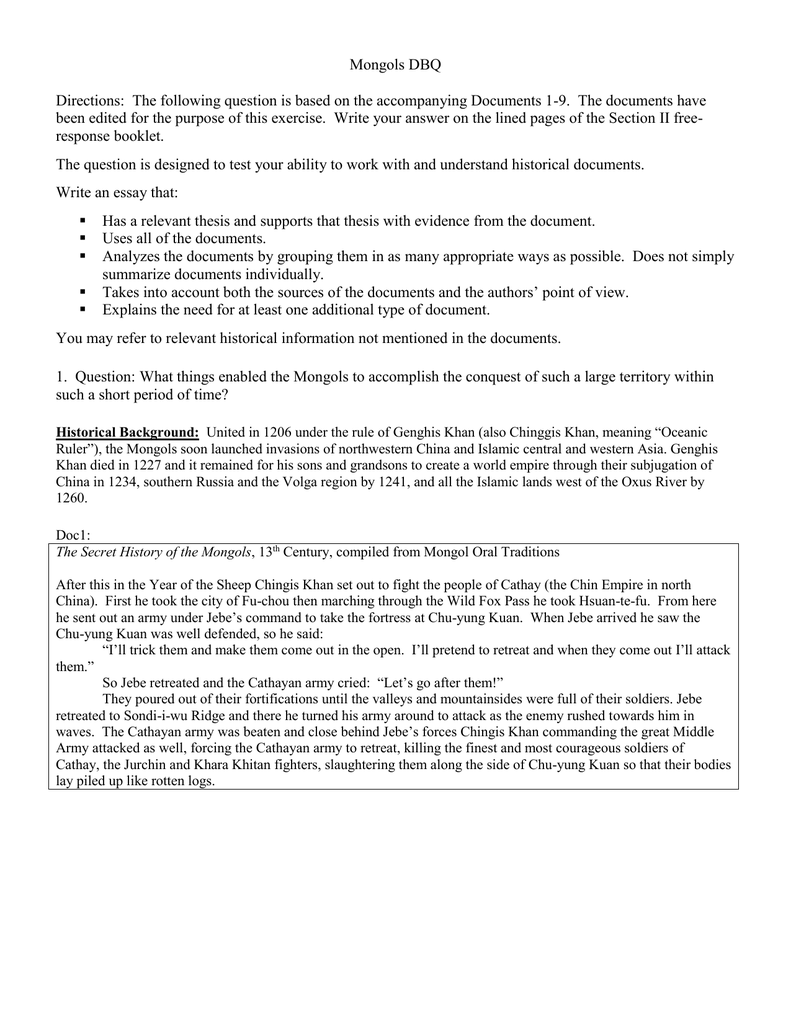The Mongol Empire, which existed from the 13th to 14th centuries, was one of the largest and most successful empires in history. At its height, the Mongol Empire stretched from modern-day China to Eastern Europe, and its rulers, the Mongols, were known for their military prowess and their ability to conquer and control diverse territories.
Despite the many successes of the Mongol Empire, it was not without its challenges. One significant challenge faced by the Mongols was their ability to effectively govern the diverse territories under their control. The Mongols were a nomadic people, and they had little experience in administering large, sedentary empires. As a result, they often struggled to effectively govern the diverse cultures and populations within their empire.
One solution that the Mongols implemented was the use of local administrators and officials. The Mongols recognized that they needed the support of the people in the territories they conquered, and so they allowed local officials to continue to govern their regions as long as they pledged loyalty to the Mongol Empire and paid tribute. This approach allowed the Mongols to maintain control over their territories while also allowing local populations to retain some level of autonomy.
Another challenge faced by the Mongols was the issue of communication and transportation within their vast empire. The Mongol Empire was so large that it was difficult for the Mongols to effectively communicate and transport goods and people across such a vast distance. To address this issue, the Mongols established a network of roads and communication systems that allowed them to quickly and efficiently move people and goods across their empire.
Despite these challenges, the Mongol Empire was able to thrive and expand due to the military might and strategic thinking of its rulers. The Mongols were skilled warriors and were able to conquer and control a vast territory through their use of cavalry and innovative military tactics. In addition, the Mongols were known for their ability to make alliances and form strategic partnerships, which allowed them to maintain control over their conquered territories.
Overall, the Mongol Empire was a complex and dynamic entity that faced many challenges in its quest to expand and maintain control over its territories. Through their military might, strategic thinking, and ability to adapt to new situations, the Mongols were able to create a vast and successful empire that had a lasting impact on the world.
Unit 2 DBQ (The Mongols in Eurasia) with Feedback
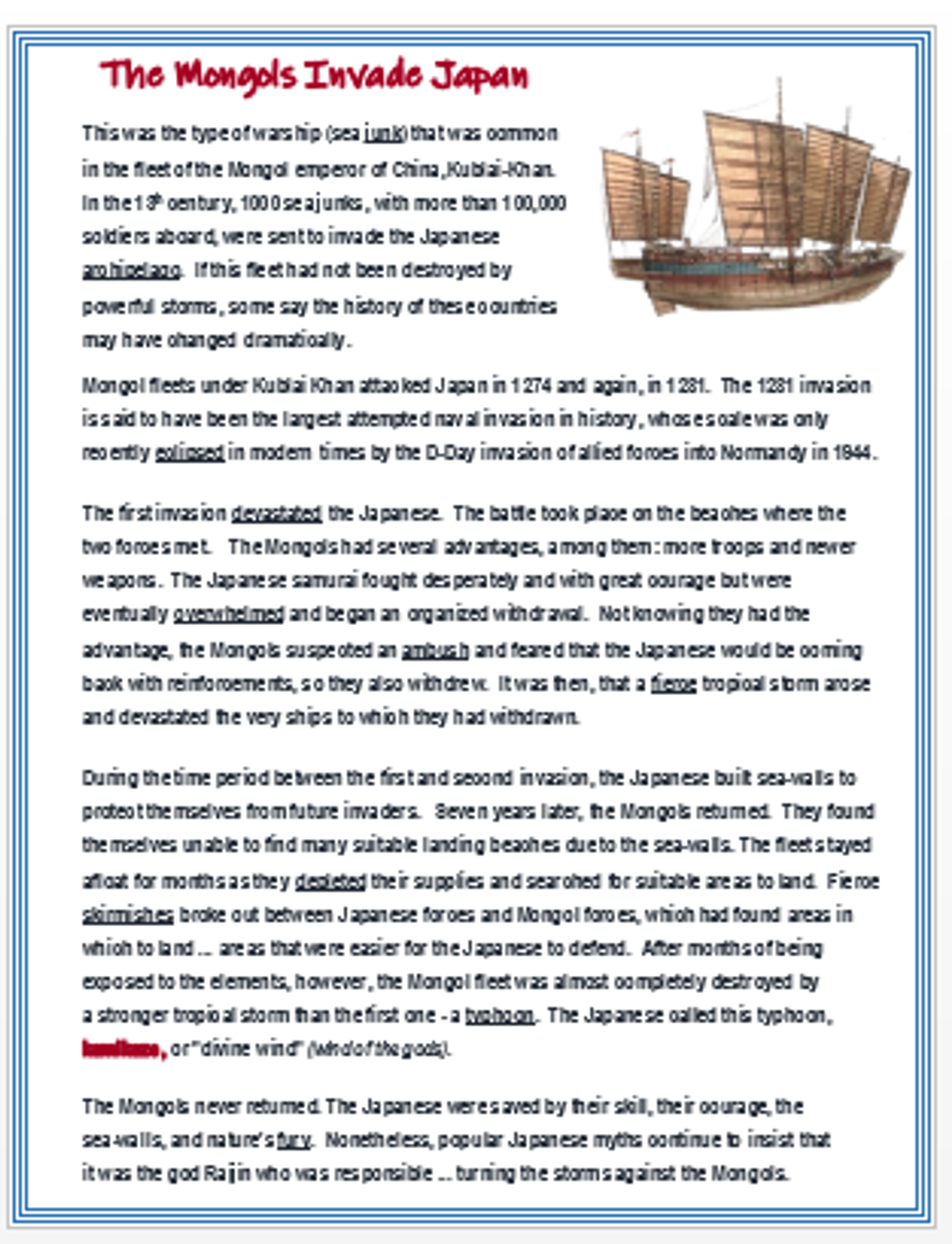
Note that the prompt was asking you to use two of the documents together to create your argument in this paragraph. The Mongols had many barbaric practices doc 3, 4, 5, 10. Vietnam Dbq Analysis 583 Words 3 Pages The Vietnam war is known as the longest war in the U. During the 13th and 14th centuries, Mongol states had a significant impact on Eurasian societies, through the transfer of religion. . The document was likely created for Mongol court officials and even Kublai Khan himself. How would that affect the way he wrote about Sorqotani Beki and the Mongols in Persia? Thesis: The Mongols significantly affected societies in Eurasia through obliterating some societies and stunting their development, while increasing cultural diffusion and economic activities between other societies by making travel across them safer and therefore leading to cultural changes and more economic prosperity in these societies.
Mongol blog.sigma-systems.com
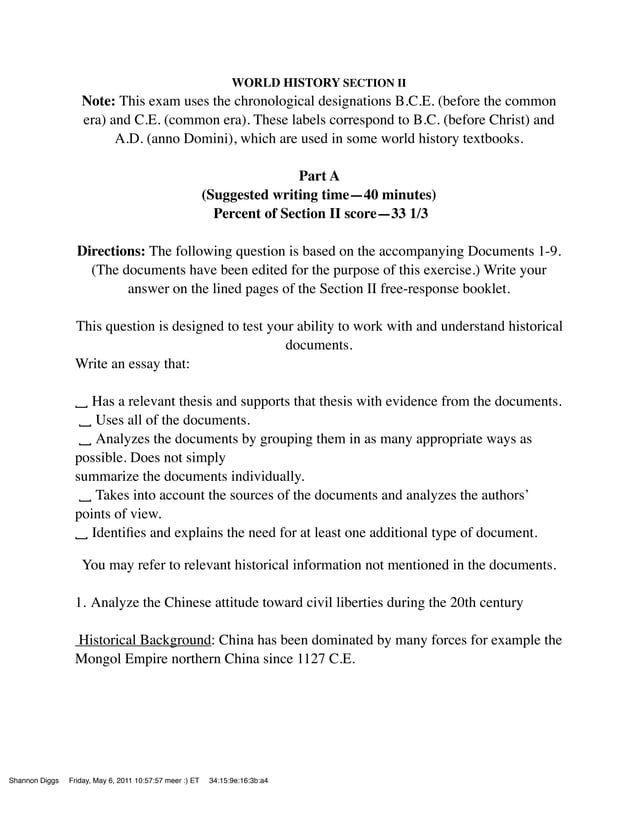
He was very complimentary of the Khan and his people, suggesting that the Mongolian Empire was not a weak empire, as well. What do you think? In Document 4, Kublai Khan, the Mongolian emperor of China, and a group of Mongols are depicted hunting. Conquering others allowed the trade routes in Asia to move north. If the Eurasian societies surrendered, the Mongols allowed them to keep their culture and religion so they had no effect on changing the society. Mongols were successful because they were interacting with many countries because of their conquests.
Mongols DBQ _ (1).pdf
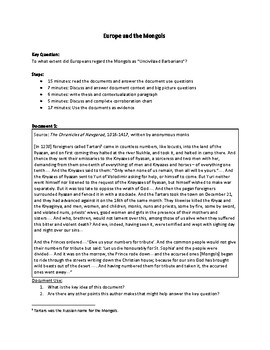
Teacher Feedback Nice work bringing together two documents in one argument in this paragraph. As a Persian scholar, Ala ad-Din Juivani, focuses on the building of a college to be a significant factor of her generosity because of her promotion of scholarship, and it also shows how like other Mongol leaders, she embraced the continuance of other cultures in Eurasian societies doc 3. Wheelis Pros And Cons Of Mongols Being Barbarians 440 Words 2 Pages What makes people barbaric? The Mongol Empire's Negative Impact On The Silk Road 296 Words 2 Pages You could walk down the silk road with a gold plate dangling from your camel and not have to worry about thieves at all in the slightest bit. Genghis Khan swept across much of Asia, the Middle East, and Eastern Europe, covering more land than any other single leader before him or after doc 1. The Mongols lived a nomadic lifestyle, often at the outskirts of other developing civilizations.
Mongol Empire Dbq
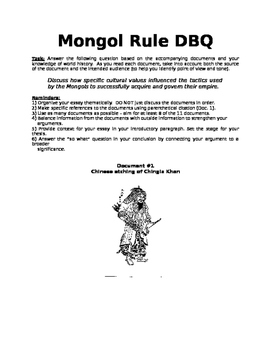
In this case, which documents would best work together to support the idea of Mongol contributions to cultural diffusion in Eurasia? Being a Christian missionary helps identify Friar John as he respected the Great Khan for being tolerant towards the Christian religion. Teacher Feedback You have a good understanding of these documents, and you have connected them together well here. The Mongols: Genghis Khan And The Mongol Empire 1012 Words 5 Pages Genghis Khan ambles through the streets of peaceful Karakorum, greeting all his steadfast warriors. A few decades prior to the publishing of these documents, The Mongols had conquered a huge piece of land that stretched all the way from Asia to the Middle East and Europe. Among the Mongols are thousands of Chinese, Russians, Polish, Hungarians, and many more flooding the streets.
Mongols DBQ Flashcards

Otherwise the reasoning is circular. The Mongols committed many barbaric crimes and they are shown through places they passed through, Genghis Khan, and their beliefs. These people became known as the mongols. Be sure that your argument connects back to the prompt so that your analysis can support your argument! The Soviet Union offered to help Vietnam, however, in order to do so they had to become communists, the country was divided into North Vietnam communist and south Vietnam democratic , eventually North Vietnam wanted to take over South Vietnam. North Korea Dbq Analysis 474 Words 2 Pages After WWII, there was communism fever in the northern part of the world. Mongols Dbq Analysis 396 Words 2 Pages Were the Mongols as heinous as historians make them out to be? Scholars regard the Mongol conquest as one of the most deadliest invasions in human history. In 13 century, the the Mongols had seized nearly the whole Eastern Europe, including now Russia, Ukraine, Romania, Bulgaria and Hungary.


